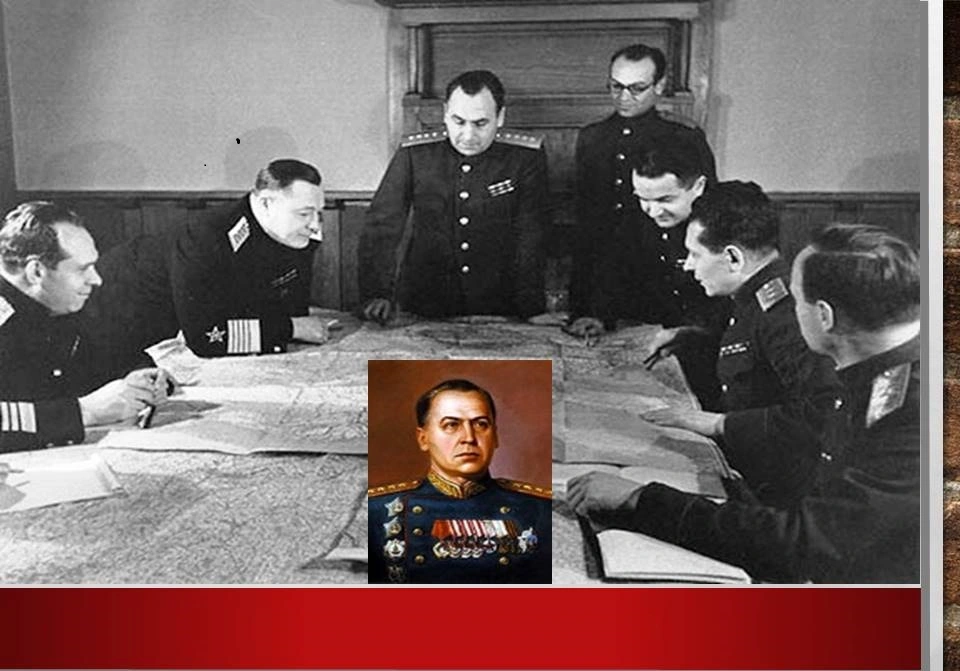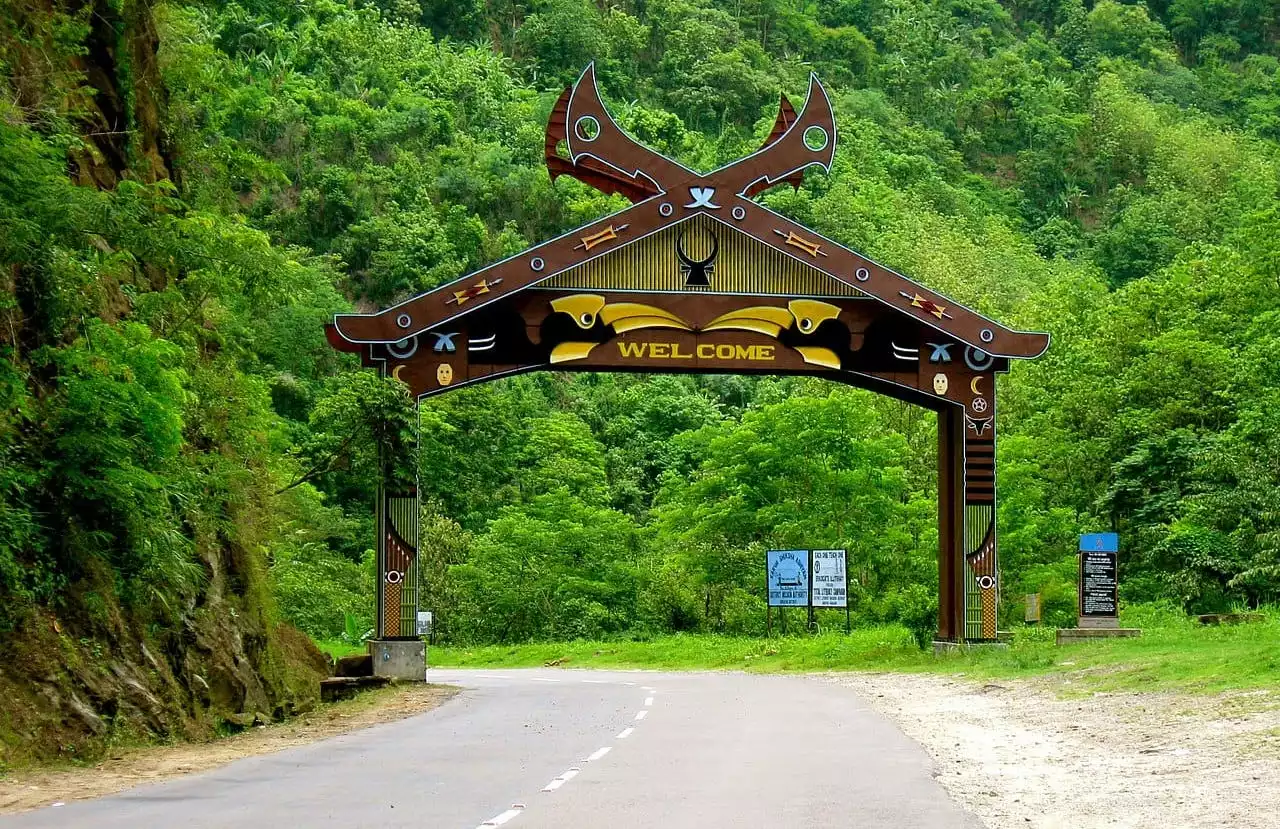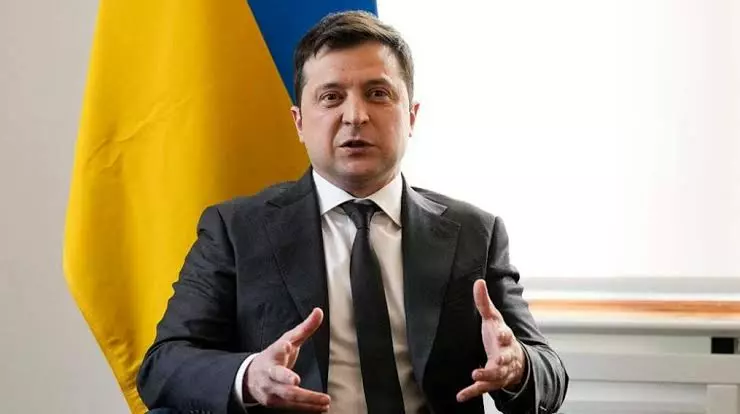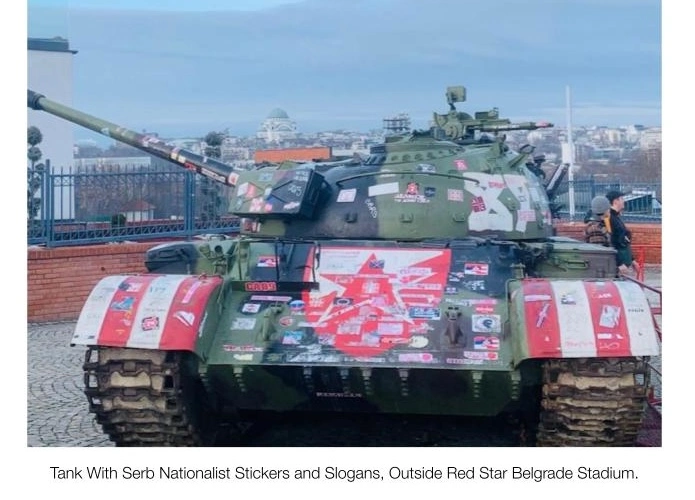Aleksei Innokentievich Antonov is not someone we can ever truly know, whether as a person or as a military strategist, as he left no memoir of his participation in the Great Patriotic War.
Although born into the officer class in Russia, he was by temperament shy, modest and not prone to suffer fools gladly. His sublime life as a Soviet military officer was distinguished by the fact that he came up the hard way, in that he was an enlisted man, then eventually an NCO, and would only become a Soviet officer and Soviet general through sheer determination and hard work at the frontlines of combat and in various officer training schools. After the war, there was an attempt as late as 2003 to have Antonov be rewarded posthumously the title of Hero of the Soviet Union, but it was to no avail – although there were high-ranking Russian officers who advocated on behalf of his legendary achievements.
Aleksei I. Antonov – who I believe was the foremost and greatest of Chief of Staffs of the twentieth century – was never made Marshal of the Soviet Union, although all the other major generals of the Soviet military field commanders who had gathered around Stalin were rewarded with that title, the highest of honours.
Aleksey Innokentyevich Antonov was born on September 9, 1896 in the town of Grodno in the Russian Empire – nowadays Grodna in the extreme west of Byelorussia. It should be noted that Antonov was not Byelorussian but he did belong to a national minority of the Soviet Union, his family’s heritage being Volga-Tatar, and he was the second of three children.
From Grodno his fate was to take him thousands of miles to the eventual seat of Soviet power during the Great Patriotic War, where his quiet and steely personality would be a defining factor in the military strategy that would culminate in the Soviet victory over Hitler and the invading Nazi German armies.
An American military historian, like many military historians, tend to describe Antonov in romantic terms, as if he were a “fluke” for his unusual aspiration and commitment to becoming a professional soldier. One historian thus describes Antonov’s early years this way:
He took his work seriously and carried it out professionally, failing to form clear alliances with other professionals despite the opportunity clearly being there. It could be said that these are the ideals of Stalinist Russia, that oppositions and alliances rather than a dedication to Stalin himself was reason for suspicion. One could claim that it was his coming of age during the Revolution that produced this ideal character for the times, however his colleagues in Zhukov, Rokossovsky and Konev were seen as suspicious immediately after the death of Stalin, thus it could be seen as a fluke that Antonov was a strictly professional worker.
Yet there has never been a Soviet historian who has implied that Antonov was sycophant for Stalin – not even when he joined the Soviet Communist Party in his early military career. It is this military historian’s perspective that Antonov was a man who had genuine political convictions, but that he kept his convictions to himself, except for letters he is known to have written to his first wife, sister, and close friends. Antonov was not naïve: he knew that Party membership was required in order to present a professional résumé. Furthermore, he simply had an understanding that pragmatically, to advance among the Soviet Army hierarchy, one had to be a member of the Party. No one, Left or Right, neither political leaders in Soviet Russia nor Soviet professional military men, nor indeed Western leaders, ever accused Antonov of being a careerist or opportunist. I will attempt to show in this paper, how Alexi I. Antonov was driven by a unique personality in which for him the need to be a professional soldier was a part of his upbringing in his youth, as well as a part of his intellectual temperament that was geared to the art of diplomacy as well.
To acquaint the reader with a more detailed account of Antonov’s early military career, I will turn to a brief account given by an English former senior researcher at the Soviet Studies Research Centre at the Royal Military Academy Sandhurst, Richard Woff. Because of the very fact that Antonov never wrote a memoir of his experiences but left only a Chief of Staff war diary that (other than a few letters to his sister) has not been translated into English, we are left with the enigma of this future great Chief of Staff for Stalin. In his essay, Woff informs us that Antonov’s interest in a military life was forged by his social background as his grandfather and father had been both artillery officers in the Tsarist era. Woff does point out early in his essay that Antonov learnt the Polish, German, French and English languages at an early age. I can state that this background reveals the social conditions which would produce not only an unconscious but a conscious type of behaviour in Antonov, resulting in his formidable aptitude in both military and diplomatic skills, particularly the latter, notably when as a major representative of the Soviet military command at Yalta he would brief his Allied counterparts in detail about the military situation on the Eastern Front.
However, to understand the complex abilities of Antonov, it is necessary to know about his actual experiences as a common soldier, even though his class origins were not of the proletariat but of the professional officer class. In other words, he did not come to fruition as a major military officer in Soviet military circles through his class connections nor through his suspected class origins. What makes Antonov so unique is that because of his unusual sensitivity he enjoyed studying geography, literature and history, which could only help him, as Woff points out, in becoming more acquainted in the latest progressive revolution in military history, strategy and tactics. Thus, the very first steps of a future military staff officer are revealed to us, not in the usual bourgeois sense of a man rising to the forefront of military expertise, but through the benefits of a family that valued education.
With the early deaths of his father and mother before World War I, Antonov was only able to complete his primary and Gymnasium education, and therefore, because of economic poverty he sought employment in a factory during the first year of the world war. Again, Woff informs us about how others around him, even factory workers, saw something special about the young Antonov, and “With financial support from his fellow workers, he was able to register at the Physics and Mathematics Faculty of Petrograd University”. However, fate did not allow him to complete his ongoing studies, as the Tsarist regime called him up for military service along with millions of other young Russians, and Antonov was sent directly to the Petrograd Pavlovsky Military School, and then eventually, a half year of technical training, he was posted to the Light Infantry Regiment of Life Guards, and – as Woff says – this was “the beginning of a military career spanning almost forty-five years”.
Ironically, he would serve as an NCO in the 8th Army on the Southwestern Front, which was commanded by the audacious General Alexei Brusilov. It was with the 8th Army that Antonov would acquire his first battlefield experiences and receive a head wound in July 1917. Recovering from his injuries in Petrograd, he would again come into action in the early years of the revolution: during the October Revolution, he joined a Guards Chasseur Regiment to help put down the Kornilov uprising that was intent on destroying the Provisional Government. Here we see in Antonov’s military life a zigzag experience of working under various military forces that were in flux due to political changes in early modern Russian (and then Soviet Russian) history. What can also be noted is that Antonov was able to work professionally as a common soldier as well as an NCO within various military and political forces without putting himself in personal jeopardy. We shall see that this is not because he was “apolitical”, but because he was skilled and judicious in working with others in the military arena, while being quiet in his tactical or diplomatic approach, letting his military verve and military thoughtfulness speak for themselves.
The Soviet General Staff at War (1941-1945) by Army General S.M. Shtemenko contains a succinct but subtle observation of Antonov’s tenacity and hard work:
Service on the General Staff has never been easy, and certainly not in wartime. Stalin established a round-the-clock system of work for the General Staff and personally regulated the duties of its leading personnel. For instance, the Deputy Chief of the General Staff, a post which A.I. Antonov took over in December 1942, had to be present on the job for seventeen or eighteen hours in twenty-four.
It was in in the early years of the Russian Revolution that Antonov actually had his first experience working as a Chief of Staff officer, when he enrolled in the Moscow Workers’ Division. During his first combat action against the White forces, he was given the responsibility of Assistant Chief of Staff of the 3rd Brigade on the Southern Front in the early days and months that that Soviet Union became in effect a nation-state, and the military historian quotes a Soviet officer of that intense historical period who wrote that “he was ‘modest and responsive’, demonstrating ‘ability, and a profound grasp of military affairs’. He was always ready to assist a comrade. At times he was also called upon to organize basic field training courses for raw recruits”.
However, it should be specifically noted that before he was given his first taste of being involved in Chief of Staff matters, he had studied at the Petrograd Forestry Institute and also worked when he could spare some time on the Petrograd Food Committee, which reveals that Antonov, although by temperament an elitist in his intellectual military theory and his literary and historical interests, nonetheless could and did relate to the common soldiers and ordinary people in his country, the Soviet Union. What makes Antonov so unique in the galaxy of great military men is that his brilliance was accompanied by a modesty and a coolness which allowed him to avoid getting distracted by people with petty social or anti-intellectual values. This kind of personal behaviour would not make Antonov a ‘heroic’ general or soldier, but instead ironically gives a sphinx-like quality to his personality. Antonov, then, remains an allusive personality that military historians will never be able to know or unravel; however, it is his actions on and off the battlefield that demonstrate his greatness.
As I have recorded, Antonov, although a part of the professional military class due to his father’s pedigree, earned his enlisted ranks through direct combat experience at a young age and suffered from a severe head wound during the Russian Civil War, which he was able to survive. There were senior officers who noticed the modest and quiet NCO Antonov, and these servicemen, who have passed into historical obscurity, would nevertheless play a pivotal role in helping Antonov to bring about his desire to go further in his military interests and capabilities.
In one Western source, actually one of the few concerning Antonov, there is this succinct but important factual description of Antonov’s later military education at the Frunze Academy:
Antonov graduated in 1931 and was appointed chief of staff of the 46th Fighter brigade, stationed in the Ukraine. In 1932 he returned to Frunze Academy for a course at the new Faculty of Operations. He graduated with honors and in 1935 he was appointed chief of the Department of Operations in the Kharkov Military District. During a large scale and complex exercise later that year, he was praised for his planning and coordination. He was subsequently promoted to Colonel. In 1936 he continued with a training at the newly established General Staff Academy. During this period, he met many of the – future – big men of the Red Army, including Iona E. Yakir, Matvei V. Zakharov, Nikolai F. Vatutin and Aleksandr M. Vasilevski (Bio Vasilevski).
What can be asserted, based on the information we have about the transition of Antonov from the combat experience veteran who went to the Soviet Frunze Academy, is to note the vital technical abilities he acquired regarding both field operations and theory, as well as learning and developing detailed planning of large battle operations that would include the coordination of troops, staff and logistical support on a strategic and tactical level. I would state that his vast knowledge of foreign languages as well as his worldly reading of military and literary works also contributed to his being able to join in the galaxy of Soviet officers who played pivotal roles in the defence of the Soviet Union in the Great Patriotic War.
As we know, Antonov was not one to leave a record of how he felt about his rise among the Soviet military staff: there is simply a silence, except for a few surviving letters that he wrote to his sister and first wife.
In another observation by S.M. Shtemenko, there is a succinct but more open appraisal of the man, revealing that Antonov never took anything for granted. Although the following passage is long, it is necessary in order to give what amounts to one of the accurate descriptions of Antonov that we have from one of the modern world’s great military theoreticians:
On December 11th, 1942, we learned that A.I. Antonov, the former chief of staff of the Transcaucascian Front, had been appointed Chief of the Operations Department and Deputy Chief of the General Staff.
Many of us knew Antonov and he was well spoken of… Nearly all his predecessors had been released from the post after a few reports to the Supreme Commander.
Antonov acted very wisely. He got to know the people in the Department well, made a thorough study of the operational situation and was in no hurry to report to GHQ. He set off for the Kremlin only about six days later, when he had a perfect grasp of the affairs of the General Staff and of the positions at the various fronts. Everything went off well, and even the doubters realized that the new Chief of Operations was just the man who was needed…Not without Antonov’s help, the Supreme Commander established a difficult and rigid but, on the whole, necessary and acceptable timetable of work for the General Staff, which was kept to for years.
Antonov himself shared all the burdens of the job with us.
Thus, without a doubt, Antonov set a modern standard of professionalism for the Soviet Army for decades to come. He went beyond political and military dogmatism and assured professional Soviet officers that there was nothing wrong with a detailed approach to planning a war, nothing wrong with working tirelessly for the Soviet State, and that one could have – analytically speaking – an independence of mind regarding military theory, while remaining dignified before an authoritative leader like Stalin. Antonov showed respect for the political and military abilities of Stalin, yet also showed no fear of the Soviet Union’s supreme leader. It is my personal view that just as he was well versed in studying the art of war and general staff duties in detail, he had likewise studied the personality and military actions of Stalin, and he acted accordingly. There was a subtle tenacity in the personality of Antonov, allowing him to further his military capabilities while as the same time being able to manipulate (in the good sense of the word) a personality or personalities that he knew to be difficult. In the twenty-first century, there are those on the Left as well as on the Right who romantically and foolishly think they can create insurrections or revolutions simply by picking up a manual from a library, for instance, which will give them an account of how to wage war, and thus they are seduced and destroyed with others by an impulsive and immature actions regarding the methodology of violence and armed struggle. War is not a gathering of friends to see how you can belittle an enemy, it is not a soirée of celebration regarding a grand plan for revolution; it is in fact a serious business with detailed planning and objective political analysis concerning the creation of strategy and tactics for limiting the magnitude of the violent deaths that must ensue.
I would say from a military operations and planning point of view, during the war between the Soviet Union and fascist Germany, it was Antonov’s crucial participation in the planning of the Battle of Kursk that showed his masterly achievement in technical military ability, and unfortunately he receives little credit for it in modern military history. However, there have been a few Western military historians who do recognize the vast abilities of Antonov. One of these noted:
It was in this field that Antonov, the General Staff’s Chief of Operations excelled. Composed and controlled, precise in thought and speech, he prepared the situation map while Zhukov ad Vasilevsky drafted the report to Stalin.
On the evening of the 12th [1943]. Zhukov, Vasilevsky and Antonov made their presentation to Stalin… Stalin accepted that the principle danger lay in the Kursk sector, but retained his pre-occupation with safeguarding the approaches to Moscow….
Zhukov, Vasilevsky and Antonov were able to neutralize, if not entirely eliminate, Stalin’s predilection for jumping the gun.
Robin Cross thus offers us a small but penetrating insight into the preparation of the largest tank battle in human history, revealing again Antonov’s controlled and measured response to planning war situation. But the British military historian, Richard Overy, even makes an even more telling case for the actions of Antonov in the development and planning of operations for the Kursk Battle:
He [Antonov] praised people seldom, planned his work with a meticulous care, spoke ‘with brevity and clarity’. His calmness and breadth of vision restored morale at the army’s head. In the months leading up to the Battle of Kursk Antonov played a key part in the planning and preparation.
It is important to acknowledge that both Soviet and Western military historians have acknowledged the brilliance and military acumen of Antonov, which future generations of those interested in studying the socialist experience of military will have available to them. Antonov was a committed Communist whose modesty and sheer professionalism gave him the unique discipline to rise above dogmatic party prejudices and jealousies that can and do exist in both capitalist and socialist nations alike.
Aleksei I. Antonov was more than a meticulous genius in regard to military operations (seen as both an art and a science); he was also a brilliant and cunning diplomat as well. In Foreign Relations of the United States: Diplomatic papers, conferences at Malta and Yalta, 1945 which is a historical document relating to the combined Chiefs of Staff of the Allied Forces, there is this short and precise statement showing how Stalin very wisely used Antonov to deliver a concise report of the Soviet military fronts, including army actions. Antonov noted the following:
It is probable that there will yet be shifted up to 30–35 divisions (at the expense of the Western European Front, Norway, Italy, and reserves located in Germany). In this manner there can appear on our front an additional 35 to 40 divisions.
Accordingly, he strongly urged the Allies "to speed up the advance of the Allied troops on the Western Front", which would allow for more flexibility in terms of Soviet troop movements in their progress towards defeating the enemy in the Eastern European countries, and hinder the Germans from shifting more divisions to the Eastern Front.
Antonov was able to attain, with his aloof and cordial personality, the results for the Soviet Union which he knew the Soviet armed forces needed at that time.
He was so respected in various Allied military circles that the Chief of Staff of the United States Army, under the guidance of George C. Marshall, sent a special note to Antonov regarding a major counter-offensive which I will only quote in part. General Marshall wrote these words to his Soviet counterpart:
Please pass the following personal repeat personal message from me to General Antonov:
“From a wide variety of sources which I have carefully checked myself, our Information here indicates a German effort to build up two groups for counteroffensive purposes, one of about 18 divisions, to reach that strength sometime between March 1st and 15th, in the general region of Pomerania, and the other of about 42 divisions in the general Vienna-Mahrisch-Ostrau region in about the same period of time. The southern concentration would include the Sixth Panzer Army of five or six armored divisions.
Please treat the foregoing as extremely confidential between the two of us. Any further details I will transmit to you immediately myself.”
This message alone from Marshall is very interesting, because the American general did not have to reveal such sensitive military intelligence to Antonov, but Marshall did understand that he had met a unique Soviet man and soldier who, even with his sphinx-like personality, rarely revealed his most private or worldly thoughts and who was able to transform a Communist military armed force, that is the Soviet Army, and thrust it boldly into the modern world with a sophistication that would yet resonate during the Korean War and beyond. Antonov was not a legend in his lifetime, but his life and work should be revisited by those who understand that military action is both a science and an art, in both capitalist and socialist nations alike.
On a personal note, I have in my procession a yellow, faded typed letter signed by Aleksei Innokentievich Antonov in which he sends his congratulations on May Day 1957 to Russian General German K. Malandin. The short, concise letter was not written for any protocol purpose, but was written by the Chief of Staff of Soviet Armed Forces simply because he, Antonov, sincerely believed in the dignity of the working people of the Soviet Union. It is important to remember that although Antonov was not born into the proletariat, it was through the fire of war in the early days of the Red Army that he learned about what actual courage is about and he set out to show it.






